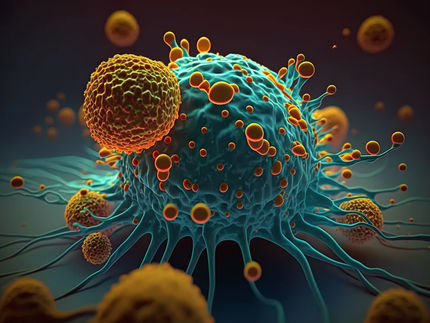Intercell reports positive results from its Phase II Pseudomonas aeruginosa investigational vaccine study
Advertisement
Intercell AG announced results from a Phase II clinical trial involving the company's investigational nosocomial vaccine candidate (IC43) against infections with the bacterium Pseudomonas aeruginosa. In the randomized, controlled Phase II clinical trial (33 sites in 8 countries), about 400 mechanically ventilated intensive care patients, who are at particular high risk of acquiring severe and often life-threatening forms of Pseudomonas aeruginosa infections, such as Ventilato-Associated pneumonia (VAP), sepsis or soft tissue infection were vaccinated on days zero and seven in four treatment groups receiving 100 or 200mcg alum-adjuvanted vaccine, 100mcg non-adjuvanted vaccine or alum as placebo control.
The primary endpoint of the study was met in that all vaccine groups showed good seroconversion rates (65 - 81%) with IgG antibody Geometric Mean Titers (GMTs) (995-2117 ELISA units/ml). There were no significant differences in treatment emergent adverse events between the treatment arms and local and systemic tolerability appeared to be good, as far as assessable in this study population. The number and nature of reported drug related adverse events does not raise any safety concern and has been confirmed earlier by a Data Safety Monitoring Board (DSMB) based on interim data.
Secondary immunogenicity endpoints were also met in this study and included IgG response assessed seven times over a period of 90 days, measurement of functional antibody activity by opsonophagocytosis assay, and measurement of antibody avidity.
Overall robust immunogenicity following second vaccination was observed in all vaccine groups. A dose-response could be observed, whereas alum did not show a clear immune enhancing effect. Antibody avidity was similar in all vaccine groups. Functional opsonozation uptake could be shown and correlated well with vaccine-induced IgG titers. Induction of functional antibodies is expected to be the major protective mechanism against Pseudomonas aeruginosa infections. Immune responses in intensive care patients appeared weaker compared to results from a preceding Phase I trial in healthy volunteers. This was not unexpected due to the reduced general health condition of patients enrolled.
Although this trial was not powered for efficacy the Clinical Endpoint Committee (CEC) confirmed infection rates and mortality were recorded within the secondary endpoints analysis.
A lower mortality rate was observed in all vaccine groups as compared to the control group. The reduction in mortality rate was statistically significant (p = 0.0196) for the non-adjuvanted vaccine (21.7% day 28 mortality in the no-adjuvanted IC43 group compared to 40.0% day 28 mortality in the placebo group).
No significant difference in Pseudomonas aeruginosa infection rates between any of the groups was apparent. However, this is likely to be due to the relatively small sample size of the current Phase II study. Larger, sufficiently powered clinical studies would be required to validate and verify any vaccine effects on mortality and infection rates.
As another key objective, the current Phase II trial investigated the feasibility of performing pivotal efficacy studies in this difficult target population: Final data confirm the anticipated number of Pseudomonas aeruginosa infections. The observed attack rate of 6 - 14% is well within expectations as only study sites with estimated Pseudomonas aeruginosa invasive infection rates of 10 - 25% were selected for this trial. These results confirm the development strategy for Intercells's Pseudomonas aeruginosa vaccine and could allow a pivotal assessment of the vaccine efficacy in potential future pivotal Phase III trials.
Other news from the department research and development
Most read news
More news from our other portals
See the theme worlds for related content
Topic world Antibodies
Antibodies are specialized molecules of our immune system that can specifically recognize and neutralize pathogens or foreign substances. Antibody research in biotech and pharma has recognized this natural defense potential and is working intensively to make it therapeutically useful. From monoclonal antibodies used against cancer or autoimmune diseases to antibody-drug conjugates that specifically transport drugs to disease cells - the possibilities are enormous

Topic world Antibodies
Antibodies are specialized molecules of our immune system that can specifically recognize and neutralize pathogens or foreign substances. Antibody research in biotech and pharma has recognized this natural defense potential and is working intensively to make it therapeutically useful. From monoclonal antibodies used against cancer or autoimmune diseases to antibody-drug conjugates that specifically transport drugs to disease cells - the possibilities are enormous


















































